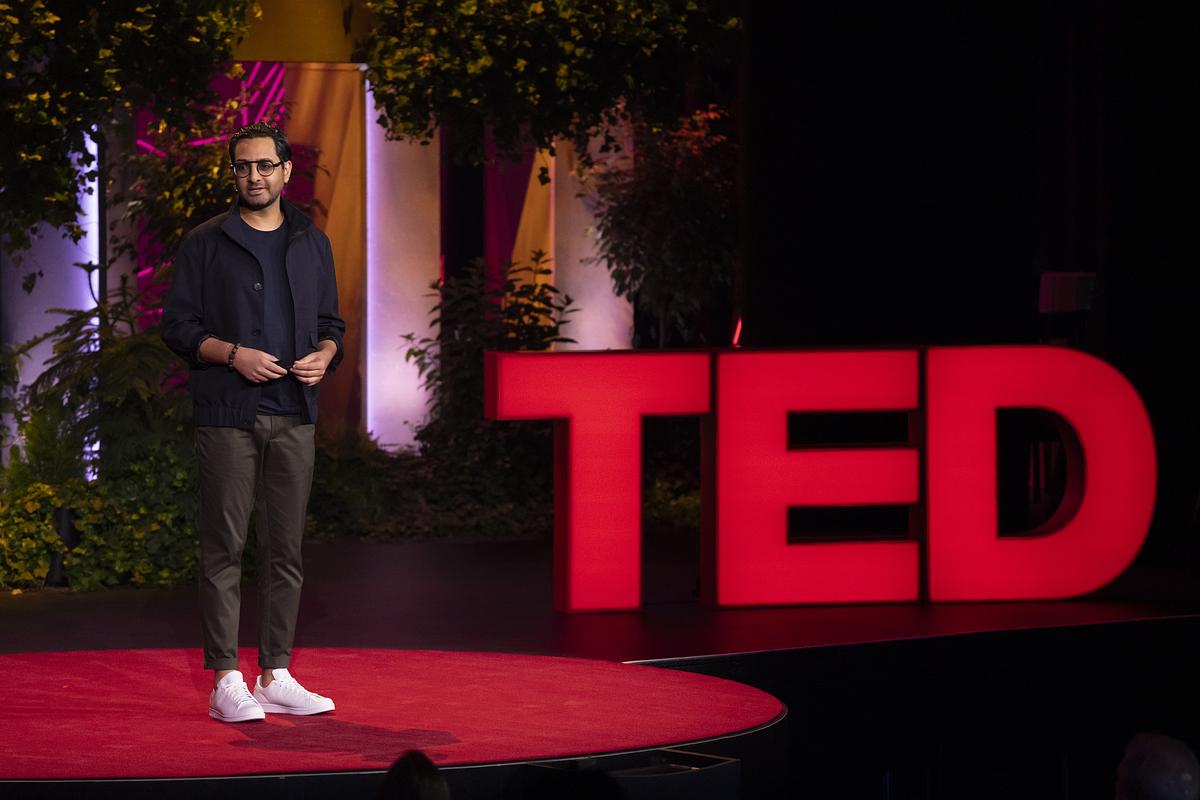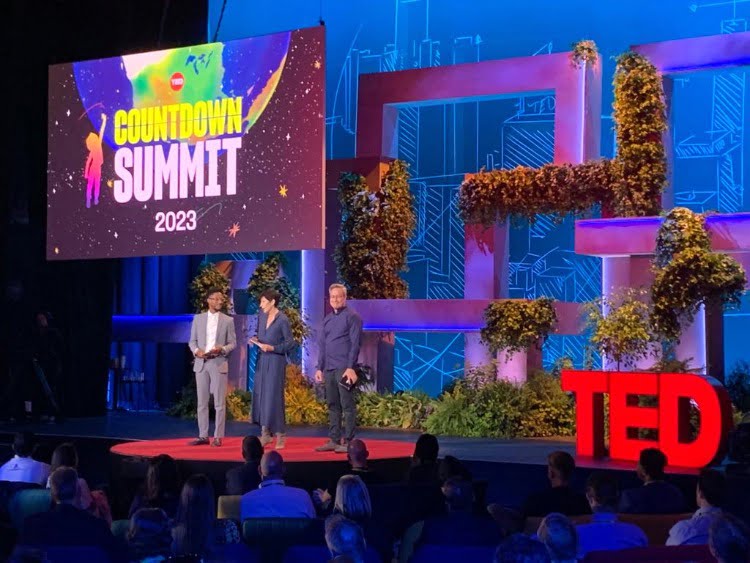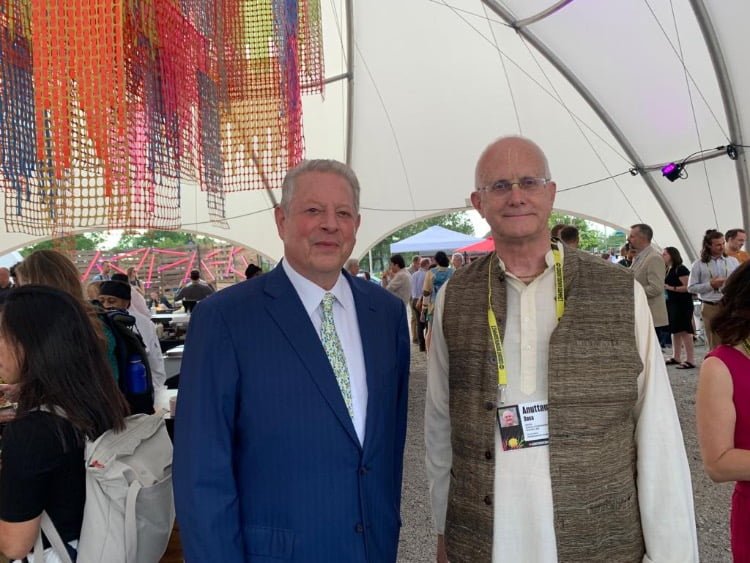TED Welcomes Faith Leaders to Climate Change Summit
By Thomas Haribol, ISKCON News Managing Editor | Июл 21, 2023

Gopal Patel on stage at TED event in Detroit. Photo Courtesy Jasmina Tomic/TED
TED’s Countdown Summit, the invite-only gathering in Detroit, Michigan, on July 11-14th, welcomed the world’s top leaders in technology, science, business, government, philanthropy, and faith to explore solutions to the growing problem of climate change. As part of their mission, the TED events gather “people from every discipline and culture who seek a deeper understanding of the world and connection with others, and we invite everyone to engage with ideas and activate them in your community.”
In light of this commitment, TED invited 15 religious leaders from multiple traditions to bring their unique perspectives to the problem and solutions for climate change. Among them was Krishna devotee Gopal Patel (Gopal Lila Das). Patel, who has worked for over a decade to educate and mobilize Hindu communities globally for environmental action, now advises several interfaith and environmental initiatives. He is a Senior Advisor to the Center for Earth Ethics in NYC, the UN Decade on Ecosystem Restoration advisory board, and currently co-chairs the United Nations Multi-faith Advisory Council. This UN council represents the first time in the UN’s 78-year history that it had created a religious advisory council of the world’s faiths. It is comprised of forty faith-based organizations that actively work and engage with the UN through the Interagency Task Force on Religion and Development.

Event hosts welcome participants.
Patel was the only faith-based speaker at the TED event, which hosted 40 presenters over the multi-day gathering. The aim of his presentation was to draw lessons from religion and spirituality that could support stronger environmental action. “Religious and spiritual communities are some of the most enduring social movements in the history of the world. They have adapted to many crises throughout human history and bring a unique voice to this particular challenge,” said Patel. “We explored the unique characteristics of spiritual groups that can support the broader environmental movement, things like community, rituals, and purposeful action in the world.”
While grateful for this high-profile opportunity, Patel emphasized the need for more people of faith to do the hard work of relationship-building and engaging in the difficult conversations our world is facing now. “We have to earn a place at the table; there’s no fast track or shortcuts,” said Patel, “Devotees have something credible and concrete to offer to the conversation. These opportunities will open up if we are honest, genuine, authentic, and have something meaningful to contribute.” This unique opportunity on a TED stage was the fruit of Patel’s fourteen years of professional work in this sector. To follow his service, you can connect through his LinkedIn profile.

Former US Vice-President Al Gore and Anuttama Dasa.
Anuttama Dasa, ISKCON’s Global Minister of Communications, was also among the 15 world leaders representing different faith traditions. Reflecting on the experience, he said, “I was so pleased to see Gopal Lila Das speak to the crowd about the important role that religious communities have to play in addressing climate change and other social issues,” He continued, “I spoke with many people who were pleased to see Hare Krishna devotees and other spiritual leaders discussing solutions to the climate crisis. We see from the example of Srila Prabhupada how he was extremely careful in conserving energy, reducing water waste, protecting trees and other natural environments. He is our Acharya, and we should be more careful in following his example.”
On a related note, you can learn more about ISKCON’s Environmental Initiative (IEI), or Green Team, by visiting https://iskconenvironment.org.















